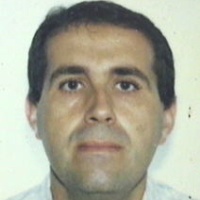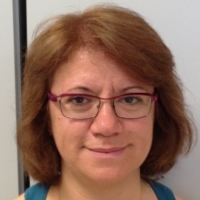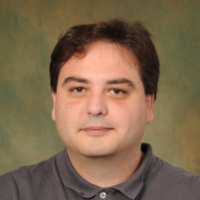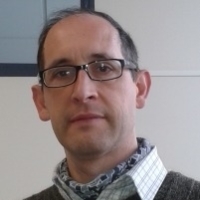The Universitat Jaume I (UJI) is the public university in the north of the Valencian Community, a region on the European Mediterranean coast located in Spain, between the cities of Valencia and Barcelona. Established in 1991, the UJI has positioned itself as a university of proximity characterized by its personal attention, smooth-running management procedures and the high levels of participation of its members in university life, due, among other things, to its convenient size, with about 15,000 students, and its integrated, modern, functional and sustainable campus.
Contribution to OPRECOMP
UJI will be in charge of the formalisation of mathematical background in WP2 and will take the lead in the development of transprecision algorithms for WP5. UJI will also participate in WP7 by contributing with scientific computing mini-apps.
Team

José Ignacio Aliaga Estellés
Prof. José Ignacio Aliaga Estellés received his B. Eng. and PhD in Computer Sciences, both from the Universidad Politecnica de Valencia (Spain), in 1990 and 1995, respectively. From 1994 was hired as Assistant Professor and later Associate Professor at UJI, where he has been a Professor in the department of Computer Science and Engineering since 2018. From 2000 to 2005, he was the head of this department. His main research interests include the application of high-performance computing on sparse numerical linear algebra and Krylov subspace methods, improving both the performance and the energy efficiency of the parallel implementations in hardware accelerators, shared-memory mutiprocessors and clusters. Prof. José I. Aliaga has published more than 70 papers in journals and conferences. In addition, he has participated in EU project on programming models (H2020 671602 “INTERTWinE:Programming Model Interoperability Towards Exascale”).

Prof. Rafael Mayo
Prof. Rafael Mayo received the BS degree from Polytechnic Valencia University in 1991. He obtained his PhD in Computer Science in 2001 at the same University. Since October 2002 he has been an Associate Professor in the department of Computer Science and Engineering in the University Jaume I. His research interests include the parallelization of scientific applications in general. Rafael Mayo has published more than 100 papers in journals and conferences. He has been/is a researcher in EU FP7 project INFRA-2010-1.2.2 TEXT and EU FP7 project 318793 EXA2GREEN. He also has participated in two EU COST networks: COST IC804 “Energy efficiency in large scale distributed systems” and COST IC1305 “Network for Sustainable Ultrascale Computing”.

Prof. María Isabel Castillo Catalán
Prof. María Isabel Castillo-Catalán (Male) is member of the High Performance Computing and Architectures (HPCA) group at University Jaume I, and received her BSC and PhD in Computer Sciences, both from the Universidad Politecnica de Valencia (Spain), in 1992 and 2001, respectively. From 1992 was hired as
Assistant Professor and later Associate Professor at UJI. Since 2013 she has been the head of the department of Computer Science and Engineering in
University Jaume I. Prof. Castillo-Catalán’s research interest address the optimization of scientific applications in general, and in more recent years in
bioinformatics applications on general purpose processors as well as hardware accelerators and their parallelization on clusters and shared memory
mutiprocessors. She has also participated in several projects on programming models and energy efficiency. Prof. Castillo has published more than 50 papers
in journals and international conferences.

Prof. José M. Badía
José M. Badía was born in Valencia, Spain. He received the B.S. degree in Computer Science from the Polytechnic University of Valencia, Spain, in 1991 and obtained his Ph.D. degree in Computer Science in 1996.
From 1994 he has been a member of the Department of Computer Science and Engineering of the University Jaume I of Castellón, Spain, where he was Teaching Assistant from 1994 to 1997, Assistant Professor to 2000 and Associate Professor since 2000. From 2007 to 2013 he was head of this department. He has published more than 40 papers in international conferences and journals. His main research interests include high performance computing for dense and sparse algebra, power consumption, as well as parallel data mining.

Andrés Tomás Domínguez
Andrés Tomás Domínguez joined in 2004 the Grid and High Performance Computing Research Group (GRyCAP) at Universitat Politècnica de València (UPV). He received the PhD degree in computer science in 2009 with a dissertation about the implementation of Krylov methods in SLEPc , an extension of PETSc for solving large sparse eigenvalue and SVD problems in parallel computers.
Fromm 2010 to 2012 he was a postdoctoral scholar at UC Davis Computer Science Department working on the acceleration of Determinant Quantum Monte Carlo (DQMC) simulations on GPUs. Since 2013 he is a lecturer at Escuela Politècnica de Gandía (part of the UPV) while working on DNA sequencing GPU applications and wireless network simulations.
Currently, he is a research associate at Universidad Jaume I de Castellón doing multiprecision benchmarking in the OPRECOMP project. For this project, he’s assessing the accuracy and stability of multiprecision numerical algorithms and collaborates with the rest of the partners on improving algorithm performance on the project platforms.

Dr. Adrián Castelló
Adrián Castelló received his BS degree in computer science, the MS degree in advanced computer systems, and his Ph.D. degree in Computer Science from Universitat Jaume I in 2009, 2011 and 2018, respectively. Currently he is a post-doc researcher at the same university working on the OPRECOMP project. Prior to that, he was a Post-doc researcher at Universitat Poitècnica de València working on the deep neural network field. His research interests include deep neural networks, programming models and distributed and shared memory systems.
For the OPRECOMP project, Adrián is analyzing how the reduction in the numerical precision may affect the performance/results of the applications from the point of view of mathematical libraries.

Vedran Novakovic
Vedran Novakovic graduated in 2006 at University of Zagreb, Croatia, where he was employed in various roles, mostly as a teaching assistant, until 2014. In 2015 he joined the Science and Technology Facilities Council in the UK as a computational scientist for the Square Kilometre Array and NLAFET projects. Afterwards, he defended his PhD thesis in 2017 at University of Zagreb with a focus on parallelizing a class of the SVD algorithms for dense matrices, and moved to Universitat Jaume I in 2018 and worked for OPRECOMP project.

Prof. Enrique S. Quintana Ortí
Coordinator of the High Performance Computing and Architectures (HPCA) group at UJI
He received his B. Eng. and PhD in Computer Sciences, both from the Universidad Politecnica de Valencia(Spain), in 1992 and 1996, respectively. From 1995 was hired as Assistant Professor and later AssociateProfessor at UJI, where he has been a Professor of Computer Architecture since 2009. Prof. Quintana-Ortí’s research interest address the optimization of scientific applications in general, and sparse and dense linear algebra problems in particular, on general-purpose processors as well as hardware accelerators, and their parallelization on clusters and shared-memory mutiprocessors. Prof. Quintana-Orti has published 300+ papers injournals and international conferences. In addition, he has participated in EU projects on programming models (FP7 INFRA-2010-1.2.2 Project “TEXT: Towards EXaflop applicaTions”, H2020 671602 “INTERTWinE:Programming Model Interoperability Towards Exascale”) and energy efficiency (FP7 318793 Project”EXA2GREEN: Energy-Aware Sustainable Computing on Future Technology – Paving the Road to ExascaleComputing”). Prof. Quintana-Orti is a recipient of the 2008 NVIDIA Professorship Award and he has received two awards from USA National Aeronautics and Space Administration (NASA) for his technical innovations.
Prof. Quintana-Ortí’s contributed in the OPRECOMP project as the member of the governing board.



